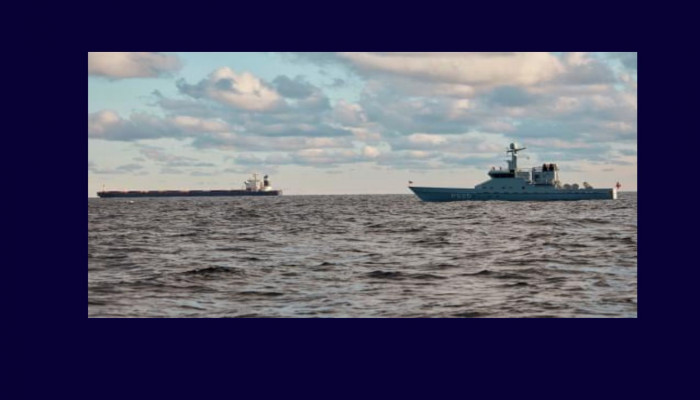Chinese ship suspected of cutting undersea cables connecting Finland and Sweden to Central Europe
- In Reports
- 11:03 PM, Nov 30, 2024
- Myind Staff
Sweden has formally requested China's cooperation regarding the suspected sabotage of two undersea cables in the Baltic Sea. Prime Minister Ulf Kristersson announced on Thursday that Swedish authorities are seeking “clarity” from China concerning the incidents involving two fibre-optic cables. These cables connect Finland to Germany and Sweden to Lithuania, and the disruptions occurred last week, raising concerns about potential sabotage.
“Today I can tell you that we have additionally sent a formal request to work together with Swedish authorities to get clarity about what has happened,” he said in a press conference.
“We expect China will choose to work together as we have requested.”
The investigation has been accompanied by speculation surrounding the Chinese ship Yi Peng 3, which was in the vicinity of the cables at the time they were severed. The vessel has remained anchored in the Kattegat Strait, located between Sweden and Denmark, since November 19, and is under surveillance by multiple vessels, including the Danish navy.
While Sweden, which is leading the investigation, has refrained from commenting on these allegations, China’s foreign ministry has denied any involvement.
According to a report by The Wall Street Journal, investigators suspect that the crew of the Chinese vessel may have deliberately severed the cables by dragging an anchor along the seabed for over 100 miles.
Swedish police and prosecutors have declined to comment further on the claims surrounding the incident, stating that they had nothing to add to their earlier announcement on Wednesday. At that time, authorities confirmed that crime scene investigations of the two undersea cables had been completed and that analysis was ongoing. Similarly, both the Swedish Navy and Coastguard have refrained from providing any additional statements.
The theory that an anchor may have caused the damage gains traction due to the absence of seismic signals typically associated with explosions. Norsar, the Norwegian national data centre for the Comprehensive Nuclear Test Ban Treaty, highlighted this point.
Senior researcher Kjølv Egeland stated, “There was no explosion or seismic signal at all, so that could be consistent with this anchor theory.” This contrasts with past incidents involving the Nord Stream and Baltic connector pipelines, where explosions were confirmed through seismic activity.
The incidents recall previous damage to critical infrastructure in the Baltic Sea. In September 2022, the Nord Stream 1 and 2 pipelines, which transported natural gas from Russia to Germany, were severely damaged in explosions. While reports in August 2023 suggested the involvement of a small Ukrainian sabotage team, Ukrainian President Volodymyr Zelenskyy denied these claims.
A similar incident occurred in October 2023 when the Baltic connector gas pipeline suffered extensive damage. Finnish investigators later recovered a large ship’s anchor near the site of the damage, which was linked to a Chinese container vessel, NewNew Polar Bear. These events underscore growing concerns about the security of undersea infrastructure in the region.
The Swedish prosecutor said, “The cable between Sweden and Lithuania, which is owned by a Swedish company, was damaged on 17 November. The cable between Finland and Germany, located south of the Sweden-Lithuania cable, was damaged a number of hours later. Both damage sites are located within the Swedish economic zone.”
Finnish police have confirmed that samples from the ruptured cable between Finland and Germany have been collected for further analysis as part of the ongoing investigation. Authorities are treating the incident as aggravated criminal damage and aggravated interference with communications.
Swedish Prime Minister Ulf Kristersson emphasised the growing concerns over regional security, describing the Baltic Sea as a “high-risk” zone during a summit with Nordic and Baltic leaders in Harpsund, Sweden, on Wednesday.
“We are aware that there is a high risk for different types of activities on the Baltic Sea that are dangerous,” he said.
He added, “Now we are careful about not accusing anybody right now of anything. We don’t know that this is sabotage. But we are investigating the matter very carefully.”







Comments